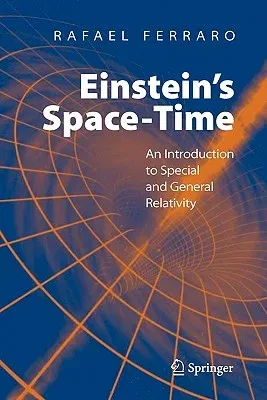Between 1994 and 1999, I had the pleasure of lecturing Special and
General Relativity in the Facultad de Ciencias Exactas y Naturales of
the Universidad de Buenos Aires. These lectures were targeted to
undergraduate and graduate students of Physics. However, it is
increasingly apparent that interest in Relativity extends beyond these
academic circles. Because of this reason, this book intends to become
useful to students of related disciplines and to other readers
interested in Einstein's work, who will be able to incorporate entirely
the fundamental ideas of Relativity starting from the very basic
concepts of Physics. To understand the Theory of Relativity it is
necessary to give up our intuitive notions of space and time, i. e., the
notions used in our daily relation with the world. These classical
notions of space and time are also the foundations of Newtonian
mechanics, which dominated Physics for over two centuries until they
clashed with Maxwell's electromagnetism. Classical physics assumed that
space is immutable and its geometry obeys the Euclidean postulates.
Furthermore, distances and time intervals are believed invariant, i. e.,
independent of the state of motion. Both preconceptions about the nature
of space and time rely firmly on our daily experience, in such a way
that the classical notions are imprinted in our thought with the status
of "true.


